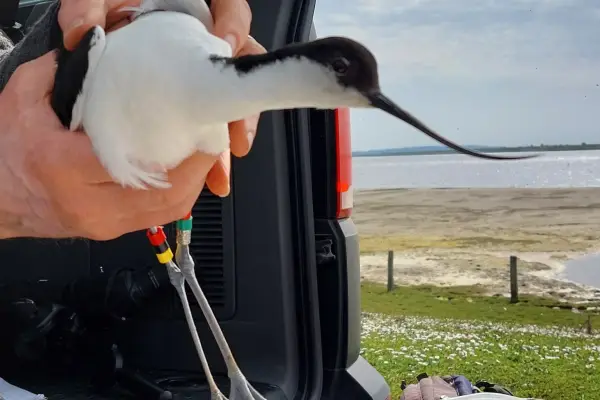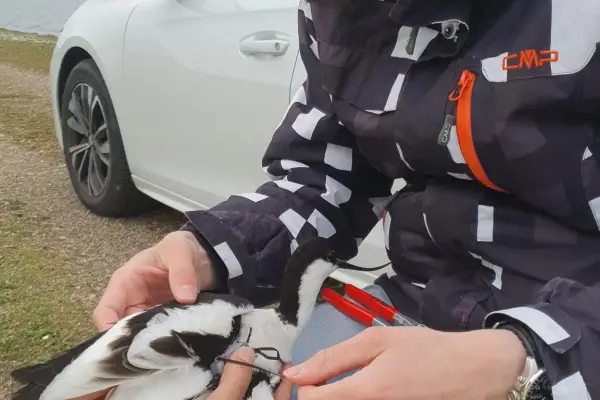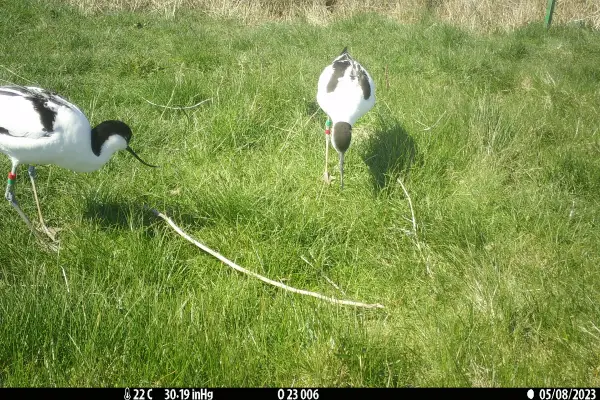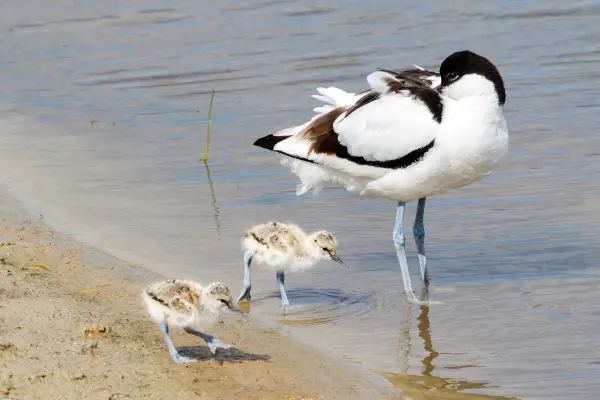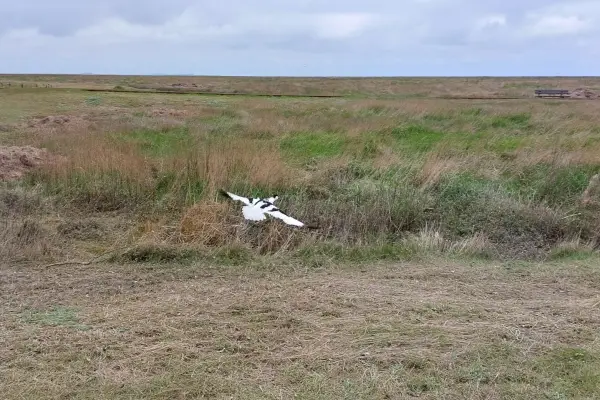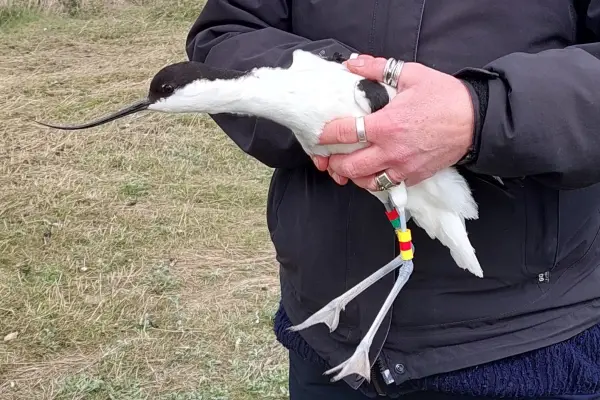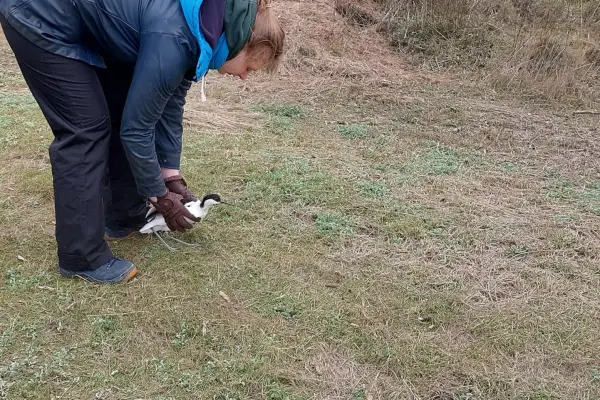National park Wadden Sea
As part of the donation campaign "Your VAT advantage for a good cause", the proWIN pro nature foundation has been supporting the Schleswig-Holstein Wadden Sea National Park for five years since 2021 with an annual donation of 28,888.89 euros.
This generous support enables the implementation of important projects for the protection of marine mammals and the unique nature in this area.
Thanks to funding from the proWIN pro nature Foundation, the Schleswig-Holstein Wadden Sea National Park Authority was able to develop the Robben.app. This innovative app, which has been in use since October 2023, makes it possible to report stranded seals and whales quickly and efficiently. Seal rescuers can use the app to obtain all the information they need to reach the location quickly and rescue the animals.
The Robben.App serves both the public and experts. It not only offers an easy way to report marine mammal sightings, but also provides comprehensive information about native marine mammals such as grey seals, harbor seals and harbor porpoises. The app also shows nearby nature information centers where interested parties can find out more about marine mammal protection.
The Schleswig-Holstein Wadden Sea National Park is one of the most important national parks in Germany and a UNESCO World Heritage Site. It stretches along the North Sea coast of Schleswig-Holstein and covers an area of 4,400 square kilometers. The Wadden Sea is a unique ecosystem that provides a habitat for numerous animal and plant species and serves as a resting place for millions of migratory birds every year.
The national park administration is intensively committed to the protection and care of this sensitive natural area. Its most important tasks include the preservation of biodiversity, the promotion of environmental education and the implementation of scientific research projects. One focus is on the protection of marine mammals, which are frequently sighted along the coasts of Schleswig-Holstein. Every year, 2,500 to 3,000 marine mammal discoveries are reported and processed here.
Since its launch, the seal.app has already been downloaded many times and is used regularly. The seal rescuers report numerous successful reports that have been processed quickly and accurately thanks to the app. Shortly after its launch, the Robben.App is already making a significant contribution to the rescue and protection of seals and whales on the Schleswig-Holstein coast.
The positive response to the Robben.App shows the great interest and commitment of the public to marine mammal protection. The intention is to continue developing the app beyond the project period and establish it in the long term.
The proWIN pro nature Foundation is proud to make such a significant contribution to the protection of the Schleswig-Holstein Wadden Sea National Park and its marine mammals with its donation. We look forward to the coming years of cooperation and the further positive developments made possible by our support.
proWIN pro nature Foundation supports the ‘Our Wadden Sea Bird’ project in the Schleswig-Holstein Wadden Sea National Park
The proWIN pro nature Foundation is pleased to financially support the ‘Our Wadden Sea Birds’ project of the Wadden Sea National Park in Schleswig-Holstein. This important project aims to research and protect the migratory and breeding behaviour of Wadden Sea birds - in particular the avocet, a characteristic species of this region. Thanks to our funding, significant progress has been made in the project, contributing to the protection of this special bird species.
Use of modern technology for the protection of birds
With the funds provided by the proWIN pro nature foundation, 39 GPS-GSM data loggers were procured. These transmitters provide valuable information on the birds' behaviour during their annual migrations. In the 2023 breeding season, 36 avocets were equipped with these transmitters in various breeding areas, including Beltringharder Koog, Hallig Oland and the South Dithmarsch Elbe estuary. These data loggers allow the flight routes and spatial utilisation of the birds in the Wadden Sea and along their migration routes to their wintering grounds to be tracked in detail.
One particularly interesting finding from the analyses so far is that the males leave the breeding area on average eight days later than the females. Presumably the males stay longer to look after the young birds. In addition, it was found that all the avocets that were tagged used the trilateral Wadden Sea, which stretches across Denmark, Germany and the Netherlands, for longer stopovers. These stopover areas are of crucial importance for the birds, as they can replenish their energy reserves here for their onward journey.
Scientific findings and conservation measures
GPS tracking of avocets provides valuable insights into the birds' migration patterns. They travel long distances along the East Atlantic migration route, from the breeding grounds in the Wadden Sea to the wintering grounds in countries such as England or even as far as Senegal. Thanks to the GPS data, not only the routes but also the time spent in certain areas can be precisely documented. This data helps to develop important conservation measures and preserve the habitats of Wadden Sea birds in the long term.
Particular attention is paid to the stopover areas in the trilateral Wadden Sea, such as the Weser estuary, the Jade Bay and the Ems-Dollart area. These regions offer the birds ideal conditions for foraging due to their muddy mudflats and enable them to fortify themselves for the onward flight to their southern wintering areas.
Public relations and scientific networking
The ‘Our Wadden Sea Bird’ project is not only supported by innovative research, but is also accompanied by extensive public relations work. There is a blog on the website of the Wadden Sea National Park (link: Unser Wattenmeervogel - Nationalpark Wattenmeer ), which regularly reports on the progress of the project. Scientific findings are shared there and entertaining anecdotes from the work in the field are described. There is also an interactive map showing the flight routes of the breeding pair from Hallig Oland in real time.
Outlook for future steps
In the coming months, the Wadden Sea National Park research team will carry out further analyses of the stopover patterns of avocets. In addition, the focus will be on foraging behaviour during the breeding season. To this end, the GPS data already collected in recent years will be used to analyse in more detail which areas the birds prefer for foraging during the breeding season and which ecological factors play a role.
The proWIN pro nature Foundation is proud to support this important project. By providing financial support, we are helping to gain a better understanding of the behaviour of Wadden Sea birds and to develop long-term measures to protect their habitats. Projects such as ‘Our Wadden Sea Bird’ show how important it is to combine the protection of wildlife with modern technology and scientific research in order to make a sustainable contribution to the preservation of our natural environment.
Impressions
Photos:
Mads Eskildsen / FTZ
Christian Wiedemann / LKN.SH
Fotofalle Schutzstation Wattenmeer
Philipp Schwemmer / FTZ
Mads Eskildsen / FTZ
Christian Wiedemann / LKN.SH
Fotofalle Schutzstation Wattenmeer
Philipp Schwemmer / FTZ
